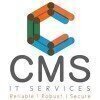5 i3indya Technologies Jobs

Embedded Hardware Engineer
i3indya Technologies
posted 20hr ago
Job Role Insights
Key skills for the job
Job Description
i3indya Technologies is looking for Embedded Hardware Engineer to join our dynamic team and embark on a rewarding career journey.
An Embedded Hardware Engineer is responsible for designing, developing, and testing hardware components and systems for embedded devices and products. They collaborate with cross-functional teams, including software engineers, electrical engineers, and product managers, to create reliable and efficient hardware solutions. The Embedded Hardware Engineer should have a strong understanding of electronics, microcontrollers, digital and analog circuits, and signal processing. They are also expected to stay up-to-date with industry trends and emerging technologies to ensure the development of cutting-edge embedded systems. Responsibilities : Hardware Design : Design and develop embedded hardware systems, including schematic design, component selection, and PCB layout, while considering factors like size, power consumption, and cost. Microcontroller/Microprocessor Selection : Choose appropriate microcontrollers or microprocessors based on project requirements and specifications, ensuring compatibility with the intended application. Circuit Design : Create digital and analog circuits for data acquisition, signal processing, power management, and communication interfaces (e. g. , UART, SPI, I2C). Prototyping and Testing : Build and test prototypes to validate the hardware design, identify potential issues, and optimize performance. Firmware Integration : Collaborate with software engineers to integrate hardware and firmware, ensuring seamless communication between the hardware and software components. Signal Integrity and EMC : Address signal integrity and electromagnetic compatibility (EMC) issues to meet regulatory standards and ensure reliable operation. Documentation : Create comprehensive technical documentation, including design specifications, test procedures, and production guidelines. Manufacturing Support : Assist in the transition from prototype to mass production by working closely with the manufacturing team and resolving any hardware-related production issues. Troubleshooting : Investigate and resolve hardware-related issues that may arise during development, testing, or production phases. Hardware Optimization : Continuously improve and optimize hardware designs to enhance performance, reduce power consumption, and lower production costs. Compliance and Regulations : Ensure that the embedded hardware designs meet industry standards, safety regulations, and relevant certifications (e. g. , FCC, CE). Research and Development : Stay updated with the latest advancements in embedded hardware technologies and actively participate in research and development activities. Requirements : Bachelor's or Master's degree in Electrical Engineering, Computer Engineering, or a related field. Proven experience in embedded hardware design and development. Proficiency in schematic capture tools (e. g. , Altium, Eagle) and PCB layout design.
An Embedded Hardware Engineer is responsible for designing, developing, and testing hardware components and systems for embedded devices and products. They collaborate with cross-functional teams, including software engineers, electrical engineers, and product managers, to create reliable and efficient hardware solutions. The Embedded Hardware Engineer should have a strong understanding of electronics, microcontrollers, digital and analog circuits, and signal processing. They are also expected to stay up-to-date with industry trends and emerging technologies to ensure the development of cutting-edge embedded systems. Responsibilities : Hardware Design : Design and develop embedded hardware systems, including schematic design, component selection, and PCB layout, while considering factors like size, power consumption, and cost. Microcontroller/Microprocessor Selection : Choose appropriate microcontrollers or microprocessors based on project requirements and specifications, ensuring compatibility with the intended application. Circuit Design : Create digital and analog circuits for data acquisition, signal processing, power management, and communication interfaces (e. g. , UART, SPI, I2C). Prototyping and Testing : Build and test prototypes to validate the hardware design, identify potential issues, and optimize performance. Firmware Integration : Collaborate with software engineers to integrate hardware and firmware, ensuring seamless communication between the hardware and software components. Signal Integrity and EMC : Address signal integrity and electromagnetic compatibility (EMC) issues to meet regulatory standards and ensure reliable operation. Documentation : Create comprehensive technical documentation, including design specifications, test procedures, and production guidelines. Manufacturing Support : Assist in the transition from prototype to mass production by working closely with the manufacturing team and resolving any hardware-related production issues. Troubleshooting : Investigate and resolve hardware-related issues that may arise during development, testing, or production phases. Hardware Optimization : Continuously improve and optimize hardware designs to enhance performance, reduce power consumption, and lower production costs. Compliance and Regulations : Ensure that the embedded hardware designs meet industry standards, safety regulations, and relevant certifications (e. g. , FCC, CE). Research and Development : Stay updated with the latest advancements in embedded hardware technologies and actively participate in research and development activities. Requirements : Bachelor's or Master's degree in Electrical Engineering, Computer Engineering, or a related field. Proven experience in embedded hardware design and development. Proficiency in schematic capture tools (e. g. , Altium, Eagle) and PCB layout design.
Employment Type: Full Time, Permanent
Read full job description What people at i3indya Technologies are saying
What i3indya Technologies employees are saying about work life
based on 2 employees
Monday to Saturday
No travel
Day Shift
Similar Jobs for you
Share an Interview





























